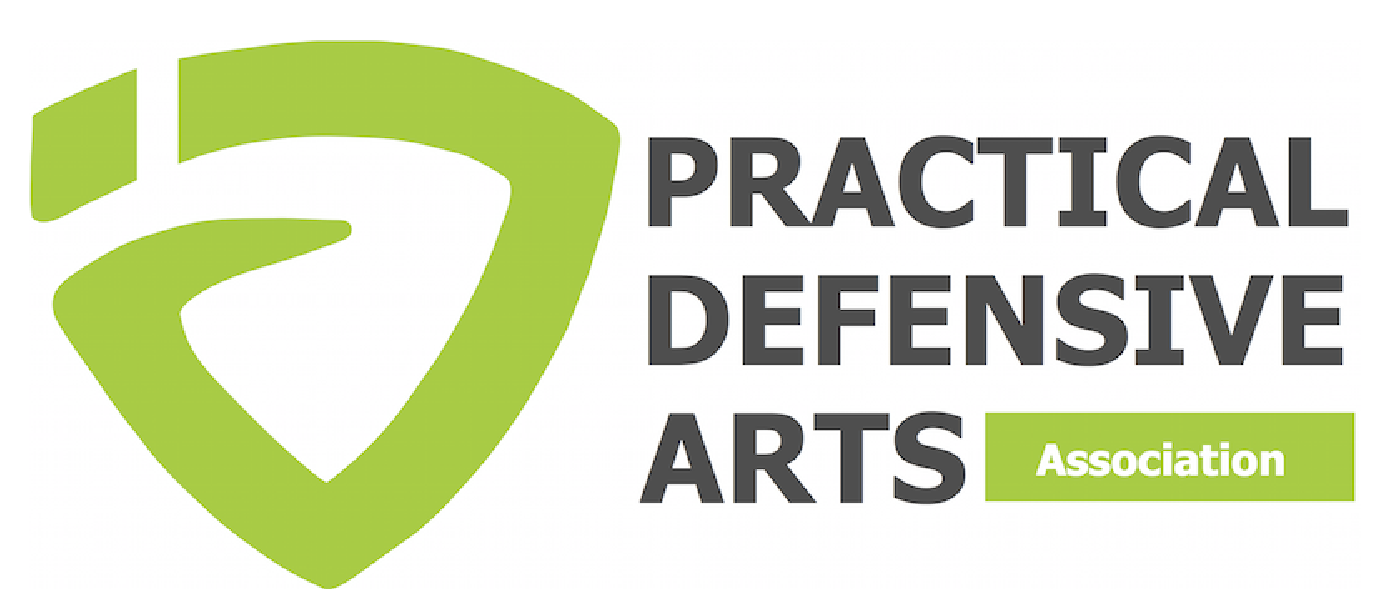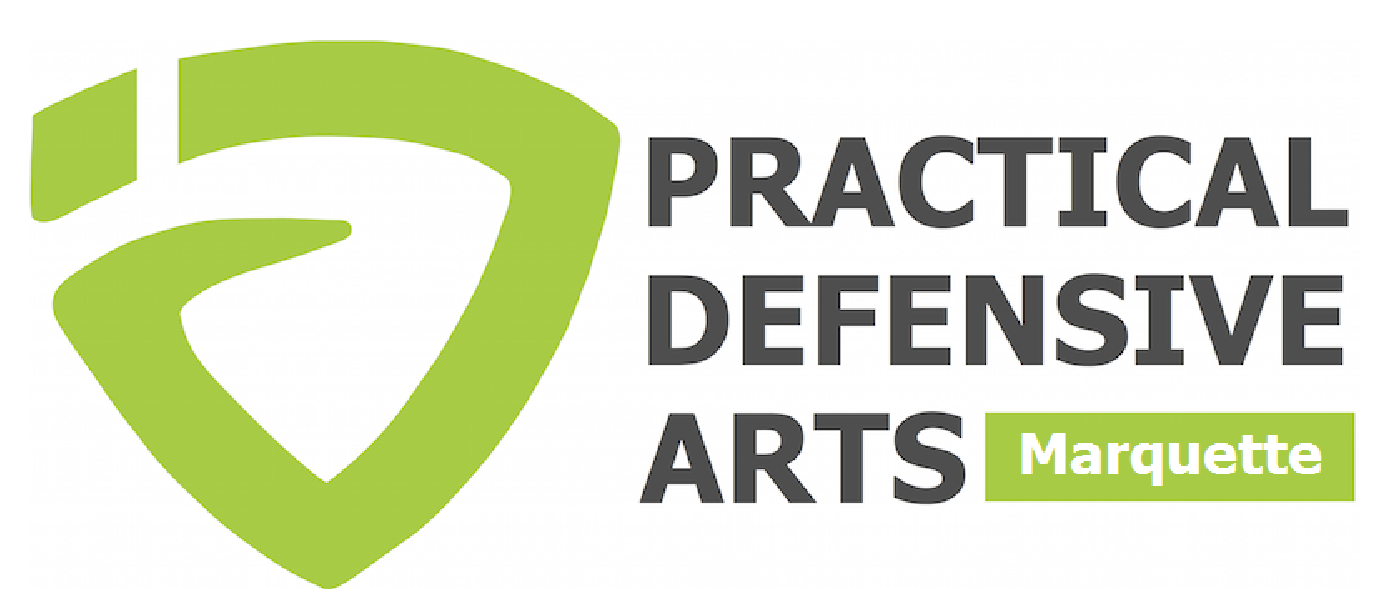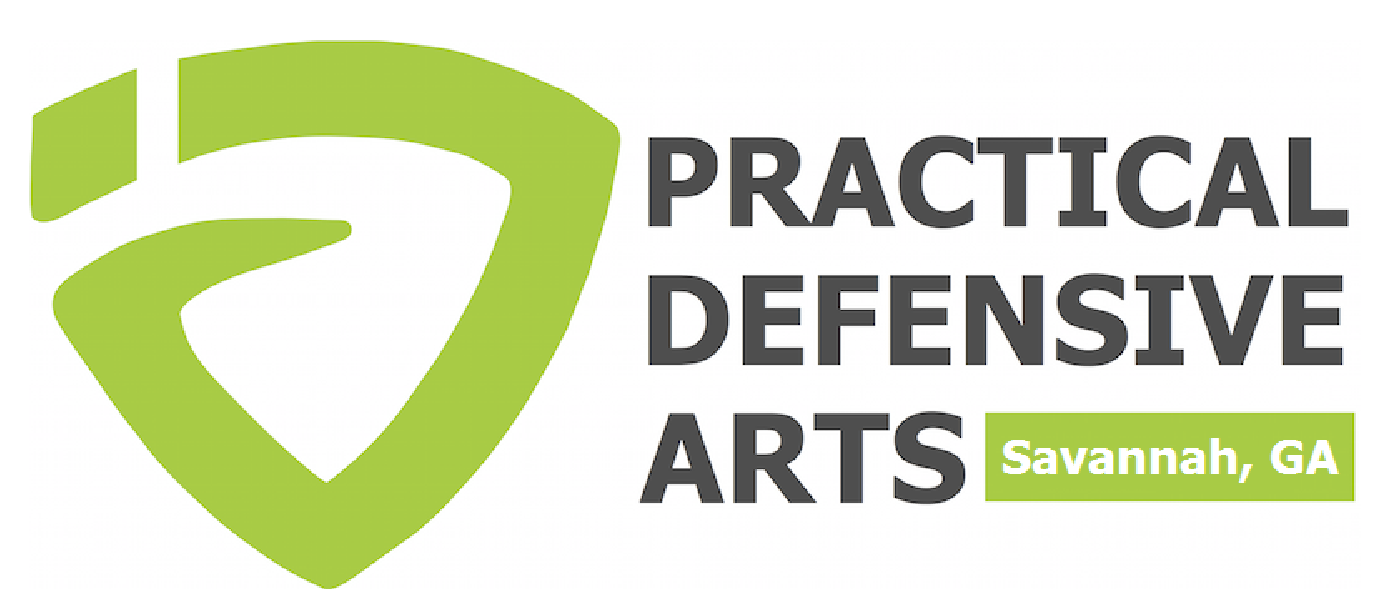

Would your group or organization like to offer personal defense training to your members? Contact us for more information!
Practical Defensive Arts is a training system designed to help people learn to protect themselves from harm. You might think of it as practical martial arts training that focuses first on thinking, rather than hitting.
The primary purpose of Practical Defensive Arts Training (PDAT) is to help you learn to protect yourself from injury.
PDAT doesn't start by showing you how to punch or kick. PDAT teaches you how to use your brain, instead of your feet or your fists.
PDAT emphasizes awareness, avoidance, and de-escalation with physical response as appropriate. A major goal of PDAT is to keep any situation from turning into a physical confrontation. For those situations when a physical confrontation may be unavoidable, PDAT helps you learn effective responses and practical techniques to reduce your chances of getting hurt.
Practical Defensive Arts is designed to:
1. Build your situational awareness so you can better avoid dangerous situations.
2. Help you quickly evaluate situations, identify risk, and make better decisions when facing potentially dangerous situations.
3. Help you understand why another person might wish to hurt you and help you change their mind.
4. Teach you how to de-escalate a confrontation to avoid physical violence.
5. For those situations when physical violence can not be avoided, PDAT focuses on defense—responding quickly and efficiently, yet appropriately to protect yourself from harm.
PDAT can be adapted to meet the needs of just about any age group. PDAT can be great fun for youngsters and young adults, but it can also be practiced and enjoyed by adults and senior citizens.
Because different groups have different interests, abilities, and needs, we recommend offering PDAT for at least three different age groups:
1. Youngsters, typically 8 to 15 years of age.
Training for this group would focus on defense, anti-bullying, and development of physical skills such as agility, balance, and quick response.
2. Adults, typically from 16 to 50 years old.
Training for this group would focus on the entire system, starting with defense, but including some of the more demanding optional skills such as the more difficult kicks.
4. Seniors, typically in the over-50 age range.
Training for this group would focus on defense and strategic response, with less emphasis on the more difficult physical skills.
Traditional martial arts training typically starts with blocking or punching or throwing people to the ground. Those can be useful skills, and they can be great fun to practice, but they are not the best starting point for defense training.
If you start by teaching people to block or punch or throw people to the ground, they will tend to do those things if they find themselves in a threatening situation. And those are generally the last things they should do in such situations. From traditional training, beginning students often get the impression that they can and should do things that will only make the situation worse, things that increase the chance that they will get killed or injured.
In Practical Defensive Arts, we focus first on avoidance, de-escalation, and defense. In later modules we cover counter-attacks and other offensive moves, but these are learned only after the student has mastered defense.
We start with defense for a reason.
Beginning students don't have very good offensive tools. If they try to "fight" with an attacker, they will almost certainly get hurt. By focusing on defense and avoidance first, we get them to focus on protecting themselves, as opposed to hurting the other person. And that greatly increases their chances of success and survival.
Another difference between PDAT and many traditional martial arts is the use of "responsive" rather than "static" drills and training methods. Many PDAT drills consist of "scenarios" in which you have to assess a situation, then take appropriate action. Many other drills require students to respond to external events or stimuli, helping them respond to threats and opportunities. Traditional martial arts training tends to be more repetitive and less responsive.
For example, in traditional martial arts training, students often spend time practicing pre-arranged attack and defense drills with a person attacking from the front. That's fine, but in real life, not everybody attacks from the front.
In PDAT, instead of endless practice of pre-arranged attacks from a known direction, we practice spontaneous defense from attacks from all directions--front, sides, back, front angles, back angles, and everything in between. As students defend from attacks from all directions and angles, they gradually become much harder to hit.
For more information, contact James Portale:
sippu76@gmail.com
906-361-0992


For more information, contact Dan Oja:
dojamtc@gmail.com
912-346-9013
For more information contact: Daniel Natale
denverbroncosdan@icloud.com
906-371-0627

Advisory Board
Daniel Oja, Savannah, GA
James Portale, Marquette, MI
John Eibler, Marquette, MI
William Kurth, Albuquerque, NM
Savannah, GA
Amber Liberati, Savannah, GA
Calvin Parker, Savannah, GA
Daniel Oja, Savannah, GA
Marquette, MI
James Portale, Marquette, MI
John Eibler, Marquette, MI
Robert Ross, Marquette, MI
Sara Wisuri, Marquette, MI
Tensi Parsons, Marquette, MI
Thomas Nevala, Marquette, MI
Phoenix, AZ
Daniel Natale
Albuquerque, NM
William Kurth